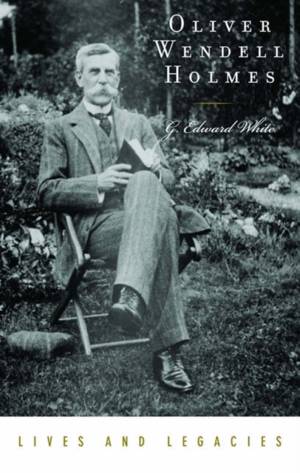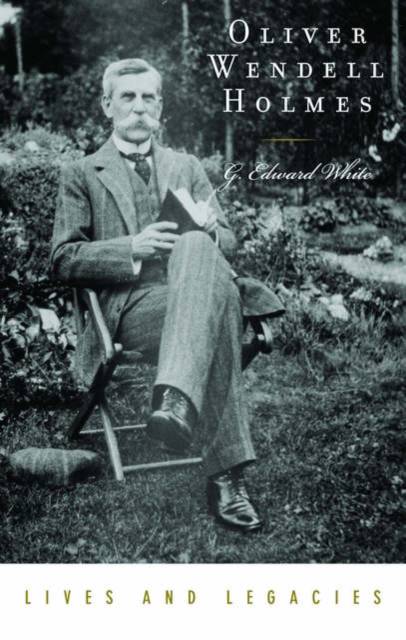
- Retrait gratuit dans votre magasin Club
- 7.000.000 titres dans notre catalogue
- Payer en toute sécurité
- Toujours un magasin près de chez vous
- Retrait gratuit dans votre magasin Club
- 7.000.000 titres dans notre catalogue
- Payer en toute sécurité
- Toujours un magasin près de chez vous
67,95 €
+ 135 points
Description
Known as the "Great Dissenter," Oliver Wendell Holmes, Jr. wrote some of the most eloquent opinions in the history of the United States Supreme Court. A brilliant legal mind who served on the high court into his nineties, Holmes was responsible for some of the most important judicial opinions of the twentieth century.
Now, in this superb short biography, G. Edward White offers readers a lively, informative portrait of this singular individual. The book first sketches Holmes's early years--his childhood in Boston, his undergraduate years at Harvard (which his father and both grandfathers also attended), and his valiant service in the Civil War, during which he was severely wounded three times. After the war, Holmes went into private law practice, wrote his landmark treatise The Common Law in 1881, had a short tenure on the Harvard Law School faculty, and spent 20 years as a judge on the Supreme Judicial Court of Massachusetts before being named to the U.S. Supreme Court. The author focuses on his remarkable 30-year service as a Supreme Court Justice, beginning in 1902, and details Holmes's most significant cases--Abrams v. United States, Northern Securities Co. v. United States, Lochner v. New York, Schenck v. United States, and others--which limited working hours, set a mandatory minimum wage, protected women's rights, legalized labor unions, and defined freedom of speech. These decisions--as well as The Common Law--are highly regarded to this day.
A new volume in the Lives and Legacy series, this marvelous short biography offers an ideal introduction to a towering figure in American law.
Now, in this superb short biography, G. Edward White offers readers a lively, informative portrait of this singular individual. The book first sketches Holmes's early years--his childhood in Boston, his undergraduate years at Harvard (which his father and both grandfathers also attended), and his valiant service in the Civil War, during which he was severely wounded three times. After the war, Holmes went into private law practice, wrote his landmark treatise The Common Law in 1881, had a short tenure on the Harvard Law School faculty, and spent 20 years as a judge on the Supreme Judicial Court of Massachusetts before being named to the U.S. Supreme Court. The author focuses on his remarkable 30-year service as a Supreme Court Justice, beginning in 1902, and details Holmes's most significant cases--Abrams v. United States, Northern Securities Co. v. United States, Lochner v. New York, Schenck v. United States, and others--which limited working hours, set a mandatory minimum wage, protected women's rights, legalized labor unions, and defined freedom of speech. These decisions--as well as The Common Law--are highly regarded to this day.
A new volume in the Lives and Legacy series, this marvelous short biography offers an ideal introduction to a towering figure in American law.
Spécifications
Parties prenantes
- Auteur(s) :
- Editeur:
Contenu
- Nombre de pages :
- 176
- Langue:
- Anglais
- Collection :
Caractéristiques
- EAN:
- 9780195305364
- Date de parution :
- 01-03-06
- Format:
- Livre relié
- Format numérique:
- Ongenaaid / garenloos gebonden
- Dimensions :
- 139 mm x 193 mm
- Poids :
- 326 g







